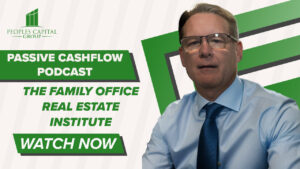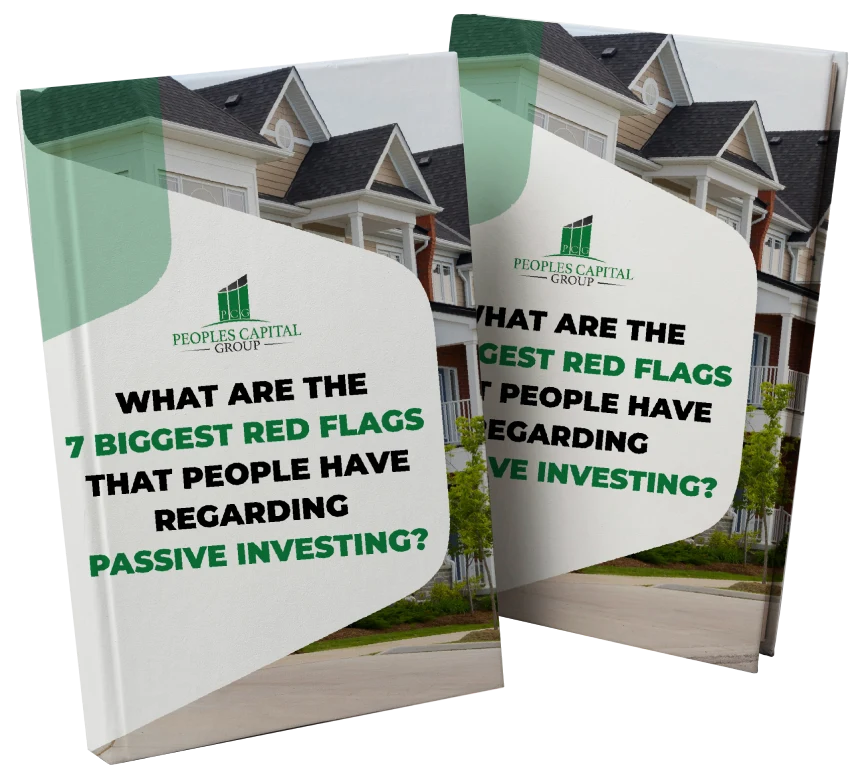
Whether you have just won the lottery, inherited some cash, or poured blood, sweat, and tears into saving your hard-earned $30k, there are many things you can do with it! Nice cars and blow-out holidays may make for some fun daydreams, but they aren’t likely to serve you well over the long term.
A popular choice among the $30k club is to pour it into the investing machine. Why? Because when it comes out the other end, you might find yourself in the $40k club or beyond! But with so many investment options out there, how do you know which will work best for you?
To put it simply, your ideal investment strategy depends on several factors. We will discuss these in this article so you can determine the smartest way to invest your money. We will also talk about a range of strategies that may work for you, plus provide some expert tips to see you along the path to financial success!
Factors That May Influence How You Invest
No two investors are the same. Each of us carries varying degrees of financial security derived from income levels, high-interest debt obligations, and even our stage of life. The best choices are informed choices, and it’s helpful to take into account the following suggestions to ensure that you are using your $30k as best you can.
Your Stage in Life
Your life stage may refer to whether you’re getting started in the financial world, if you have a growing family, are making a major move overseas, or are approaching early or typical retirement.
Any of these factors could influence your investing goals. Evaluating your stage in life requires you to take a look at where you are now and project where you’d like to see yourself in the future. The bridge between these two places is what will inform your goals and investing strategy.
Your Risk Tolerance
Risk tolerance is determined by how well you can financially absorb the complete loss of your investment. To what degree would your life be affected if you lost the full investment tomorrow? For some, this might be because of a change in life circumstances, and for others, it may come from their employment situation. Usually, it’s a combination of the two.
For instance, self-employed individuals may prioritize savings accounts for retirement, whereas employees with a sound 401k plan may consider other investing options. By the same token, if you’re looking to put your $30k towards your forever home in a few years, capital preservation may be a higher priority than other high-risk growth vessels. It all comes down to the individual.
So now you have an idea about what you’re hoping to achieve, let’s see how you can go about reaching your financial objectives.
Investing $30k in Real Estate
Real estate investing is a popular option for investors seeking steady maturation in their investment portfolio and recurring cash flow. While $30k probably won’t buy you property, there are still ways to invest in real estate to grow your wealth and make some additional income.
Here are a few reasons why real estate investing is so popular:
Appreciation – As the market value of similar properties grows over time, your asset will rise in value too. This event is called appreciation. Generally, the US real estate market will appreciate at 3-4% per year, though it can be as high as double-digits in some markets.
Cash Flow – Monthly rental yield from your assets generates recurring income streams. Investors not only watch their assets grow in value before their eyes, but they receive regular dividends too!
Equity – The difference between the amount owing on your property and its market value is called equity. You leverage your equity in real estate assets to purchase more real estate.
Tax Benefits – Real estate allows investors to deduct depreciation and property expenses from their taxable income to offset rental income tax.

Real Estate Crowdfunding
Crowdfunding is a great way to invest in real estate. It allows investors to pool money with other partners to purchase profit-producing assets that any individual may not be able to afford (or manage) on their own. By owning equity in several commercial properties, investors receive multiple income streams from buildings that steadily appreciate. Furthermore, their real estate portfolio gets diversified across multiple markets!
Real estate crowdfunding platforms like People’s Capital Group use professional investors who scour the market for real estate deals and use investor capital to secure them.
This passive investing method is well-suited for busy professionals who do not have the time or experience to manage commercial properties but want to experience the profound returns of high-end commercial investments.
What’s better is that you can invest with People’s Capital Group with as little as $30k in the bank! So if you’re looking for a low-risk passive investment with high returns, contact People’s Capital Group today.
Fix Up Your Home
This option is for those who already own a home. Particularly if you’re in a stage of life where you are planning to put your property on the market in the next few years, a $30k investment in maintenance and repairs can add significantly more value to the appraisal of your property.
Property appraisals consider recent repairs, such as new roofing, interior or exterior paint conditions, plumbing, and amenities. Even adding windows or opening up new spaces can add value to your home. And the best part? Many of these can be achieved with less than $30k.
If you’ve got a penchant for DIY or have networks in the construction industry, you’ll be able to stretch your money even further. Investors have a high level of engagement in activities, so this strategy is best suited for those seeking an active investment.
The risk involved will depend on the state of the housing market in your area. House prices are growing steadily and are unlikely to slow down, so now could be the opportune moment to take advantage of the markets! Your money will be illiquid until you sell your home, but once your property is on the market you stand to reap excellent returns on your investment!
House Hacking
House hacking is where you convert additional or unused areas in your home into a rented space and make money from the rental income. The strategy is active and ultimately depends on whether you’re willing to share your living space.
There are two ways to go about this. The first is creating a long-term rental space, where you get a full-time tenant to move into your home. You can charge more for independent units, so if you had a habitable basement area, for example, you could invest $30k into refurbishing it as a self-contained living space.
Alternatively, if you live in a metropolis or tourist destination, you can hit the short-term rental markets. By advertising your space on websites like Airbnb you can charge higher amounts on a rent-per-night basis.
This method can make a decent long-term investment to increase your income. However, it works best if you reside in a market where rentals are popular.

Real Estate Investment Trusts
By investing in REITs you can gain money indirectly from real estate without actually owning any property. Similar to crowdfunding, real estate investment trusts use investor capital to purchase, operate, or develop real estate assets. They then pay investors regular dividends from rental yield. They are a good way to secure a passive income.
However, unlike crowdfunding, your cash is unlikely to grow with REIT investments because you do not actually own any equity in the properties firms invest in. REITs are comparable to a mutual fund (which we’ll get into below) since you invest in the fund and receive returns based on the performance of the properties.
Investing $30k in Banks
Banks are a classic option for investing your money. They’re stable, low-risk, and often offer reasonable interest rates. When you’re choosing an account to invest your money in, you should consider your goals. A savings account can be a great option for those seeking a safe investment with low risk. But if you’re looking for an investment with the potential for higher returns, a money market account might better cater to your needs.
High Yield Savings Account
Opening a high-yield savings account with a credit union or bank will earn you better returns than keeping your money in a checking account. Checking accounts offer low interest on your deposit, whereas savings accounts will pay regular returns in the form of interest rates.
You can easily compare different interest rates that banks offer to find a decent place to invest your money, and these accounts are easy to set up. Furthermore, you do not have to actively participate in this investment, which is excellent if you are looking for a passive investment.
Returns may be better than a checking account, but they won’t be as high as what real estate can offer you. This option works best over the short term, as returns over a long period likely won’t keep up with inflation.
These accounts are low-risk because they’re insured by the Federal Deposit Insurance Corporation (FDIC) at banks and the National Credit Union Administration (NCUA) at credit unions.
Your funds are usually very liquid in savings accounts, though you may be charged fees by your banks for regular withdrawals.

Money Market Funds
Money market accounts are another type of bank account investment. They offer higher interest rates than traditional saving accounts, but they usually require a minimum investment. During the term of your investment, the value in your account must not drop below this level.
It’s best to find a money market account that is FDIC insured to reduce your risk of losing money. Similar to savings accounts, money market accounts carry low risk over the short term since interest rates will not match inflation. When you invest in a money market account, your cash will be highly liquid. Although, unlike savings accounts, the Federal Government imposes certain restrictions on withdrawals.
Investing $30k in the Stock Exchange
The stock market is a popular choice for investors seeking long-term growth. It can be riskier than the other options we’ve spoken about, so you’ll want to make sure that you research and pay due diligence before investing. It’s also a good idea to keep an eye on the market during the term of your investment so you see how your funds perform.
Stocks
So let’s say you’ve decided to invest for 20+ years, and you’re willing to take on some risk. Investing directly in the stock market could be a good option for you. It’s important to take your time and learn about each company before you invest any money in them. Become familiar with the news, stock performance histories, and professional forecasts so that all of your decisions are informed.
Once you’re familiar with stocks as an investment vehicle, select a few companies you feel comfortable with. Ensure that you invest in companies that match your risk tolerance, and start small until you’re confident with the process.
Short-term stock shifts can change dramatically, so make sure you’re prepared for a long-term strategy if you choose to go with stocks. To avoid making decisions in the heat of the moment, set up a plan before you begin, and know how much you’re willing to lose.

Bonds
Bonds are essentially loans made to large organizations. You invest in them the same way as stocks, though they tend to be more predictable. Many bond investments will not produce the returns you’re likely to see in real estate markets. However, they are great for those with lower risk tolerance. They come in many forms, such as:
US Government bonds – these bonds are backed by the federal government. They focus on capital preservation rather than growth. Accordingly, they come with the lowest risk but also the lowest returns.
Municipal bonds – Towns and cities issue municipal bonds. They have a marginally higher risk than government bonds and offer relatively low returns.
Corporate bonds – Corporations issue corporate bonds. They come with a higher risk than the others, but they generate the highest returns.
ETFs of Mutual Funds
Mutual funds and exchange-traded funds are one way to diversify your portfolio. Rather than investing with one stock fund, you can split your shares between stocks, bonds, and other securities. EFTs are directly traded on the stock market, whereas mutual funds pool money from many investors to purchase a diversified portfolio. Mutual funds are not as liquid as a savings account, though your cash is still relatively easy to access.
These options are lower risk than stocks since they are diversified. They usually generate around 7-8% average returns, and the management fees are low.
Tips to Grow Your $30k
Note that many of these investments will require different approaches. So we’ve compiled a list of tips to help you make the most out of any opportunity. These are considered best practices for investing and are simple guidelines to ensure success.
Clear Your High-Interest Debt
Any high-interest debt, like credit card debt or student loans, may charge as much in interest as you receive in returns. It’s wise to clear as many of your debt obligations before you begin to invest your $30k.
You may not have the full $30k to invest once you’ve paid off your debts, but the amount you will be able to save in debt interest over the long term does add up.
Diversify Your Investment Portfolio
You’ve probably heard this before, but diversifying your investment portfolio is a great way to protect you from investment risks.
That’s because when one market is affected by fluctuations, other markets are not impacted in the same way. For example, imagine you invest in real estate and stocks. When the stock market dives down, your real estate profile will likely remain steady, and vice versa.
Be Consistent
If your financial goals are to secure additional cash flow streams, you may choose not to continue contributing to your investment. However, if capital growth is a priority, then it’s a good idea to set up a schedule and regularly contribute to your projects to make the most of the work they do for you.
When you make consistent contributions, you can be sure that your money is undergoing more significant development than if it was sitting in your low-interest bank account or your pocket. Plus, making a habit out of being disciplined with your investing systems will carry you to financial freedom faster.

Never Stop Learning
We can always be learning, and the best investors never stop. If you want to get serious about investing, check out any social media groups or local meet-ups to gain perspective from people with more experience.
After you have been investing for a while, you’ll develop more knowledge and expertise, and you will be able to help those just starting out too!
Final Thoughts
If you’ve got a spare $30k, you want to make sure you’re going to invest money in a place that will help you reach your goals. It’s no secret that when you begin to invest, there are a lot of things to research, and volumes of questions to ask before you decide what the best option for you is.
Real estate investing is a popular choice among investors because of the high returns available, and its low correlation to the stock market. Crowdfunding is an excellent opportunity for busy professionals because it pays regular dividends and you gain equity in a property that hedges your money against inflation over the long term.
If you’re looking to secure a passive income without the fuss, and without pouring hours into researching funds, or risking low returns, get in touch with the team at People’s Captial Group today. Our professional real estate investing experts have been in the game for 30 years, so you can trust that we will make your money work hard for you in profitable commercial real estate.





